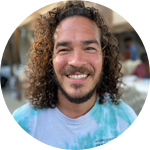About This Project
Environmental monitoring can empower Indigenous communities with data to inform community civic action. Deploying sensor networks to gather data is technically challenging, and expensive. This project aims to answer the question: can sustainable environmental monitoring systems be designed accessibly enough so that students and community members can better monitor environmental health and enable Indigenous-led civic action?
Ask the Scientists
Join The DiscussionWhat is the context of this research?
Remote off-grid sensors are vital for most environmental and Earth science research. Moreover, creating sensors that are accessible to people who are not computer experts is essential. Logistical problems non-programmer environmental scientists and students might encounter include how the device will communicate data, withstand environmental conditions, etc. Our laboratory focuses on creating accessible battery-less devices that record and communicate data without needing to be charged. Our project aims to help monitor the Waikalua Loko I'a fish pond to make better decisions to mitigate invasive species and pollution. Led by a Native Hawaiian director, we work with groups in Hawaii to empower Indigenous people, with technology for action.
What is the significance of this project?
Our research aims to answer the question of whether off-grid data collection systems can be designed so that non-coding scientists and students can use them to easily collect environmental data to drive indigenous-led civic action. Indigenous people worldwide lack access to environmental data that can inform policy, legal frameworks, and resource management. Generally, serious technical ability or finance is needed to gather large-scale environmental data, making coordinated restoration efforts inaccessible for Indigenous communities. We believe the accessibly designed, lower cost, and effort sensing kits will extend users' ability to accomplish their ecological restoration goals in the Waikalua Loko I'a fish pond.
What are the goals of the project?
This project will work with the Pacific American Foundation (PAF), and Pu'ohala School in Kaneohe Hawaii, to test if designing sensing kits for accessibility will cause students and scientists to better support the restoration and health of the Waikalua Loko I'a fish pond. Our goal is to design the kits so that Native Hawaiian students, environmental scientists, and cultural practitioners can more easily environmental data such as record pH, temperature, flow patterns, and indigenous mussel/fish populations. After, we will compare the effectiveness or differences in sensing and monitoring capabilities between what students and PAF had used previously versus using our sensing kits. We aim to publish our work and differences in outcomes for all Indigenous communities.
Budget
Our research budgeting has two parts: the first is buying hardware to assemble and engineer the environmental sensing kits, and the second part is participant compensation for environmental research groups and student partners we will be conducting user testing. The majority of the budget will go towards buying hardware so that our lab can make many prototypes. Within the hardware, the largest costs are the energy harvesters for enabling sustainable batteryless sensing/computing and environmental sensors for collecting pH, temperature, flow, and indigenous animal population data. Participant compensation will be $10 an hour for 5 hours and 20 participants.
Endorsed by
 Project Timeline
Project Timeline
To answer our research question we will first record data about what our target users are currently doing to accomplish their goals. Then we will develop the kits to answer our user's needs, collect data on the usability (time to complete tasks, success/error rate, etc.) of the system, and record the civic and educational impact after it is used. We will then compare the usability and civic impacts with the preliminary data to see if our kits answered our hypothesis.
Apr 21, 2022
Project Launched
May 15, 2022
Create initial plans with Pacific American Foundation (PAF), and Pu'ohala School in Kaneohe Hawaii, to conduct users studies about environmental data collection.
Jun 15, 2022
Conduct virtual workshops and in-person visits to collect data on what users are doing to accomplish their environmental data collection tasks/challenges.
Jun 30, 2022
Record the usability of their current approaches, and record indigenous-led civic action that is being worked on by the community.
Aug 18, 2022
Finalize coding and analysis of data, interviews, and assessments of information. Share summary with all stakeholders.
Meet the Team
Team Bio
Ka Moamoa is an interdisciplinary research lab at Northwestern University exploring energy-efficient computing in the context of global-scale applications ranging from healthcare to environmental engineering. We are funded by NSF, NIH, and DARPA, on multiple projects spanning engineering, science, and health.
Josiah Hester
My research is broadly in ubiquitous and mobile computing, wireless sensor networks, and embedded systems. Specifically, I study battery-free smart devices and intermittent computing, where I design computer systems resilient to frequent and unpredictable power failures. I work towards a sustainable future for computing informed by my Native Hawaiian (Kanaka maoli) heritage. I apply my work to healthcare, infrastructure monitoring, novel interactive devices, and conservation.
I was named a Sloan Fellow in Computer Science and won my NSF CAREER in 2022. I was named to Popular Science’s Brilliant 10, the AISES Most Promising Scientist, and won a 3M Non-Tenured Faculty Award in 2021. My work has received six Best Paper type Awards and seven Best Presentation type Awards. My research has featured in the Wall Street Journal, Washington Post, BBC, Popular Science, Scientific American, CNET, Mashable, Communications of the ACM, the Guinness Book of World Records, and many others.
Lab Notes
Nothing posted yet.
Project Backers
- 11Backers
- 93%Funded
- $4,596Total Donations
- $417.82Average Donation

